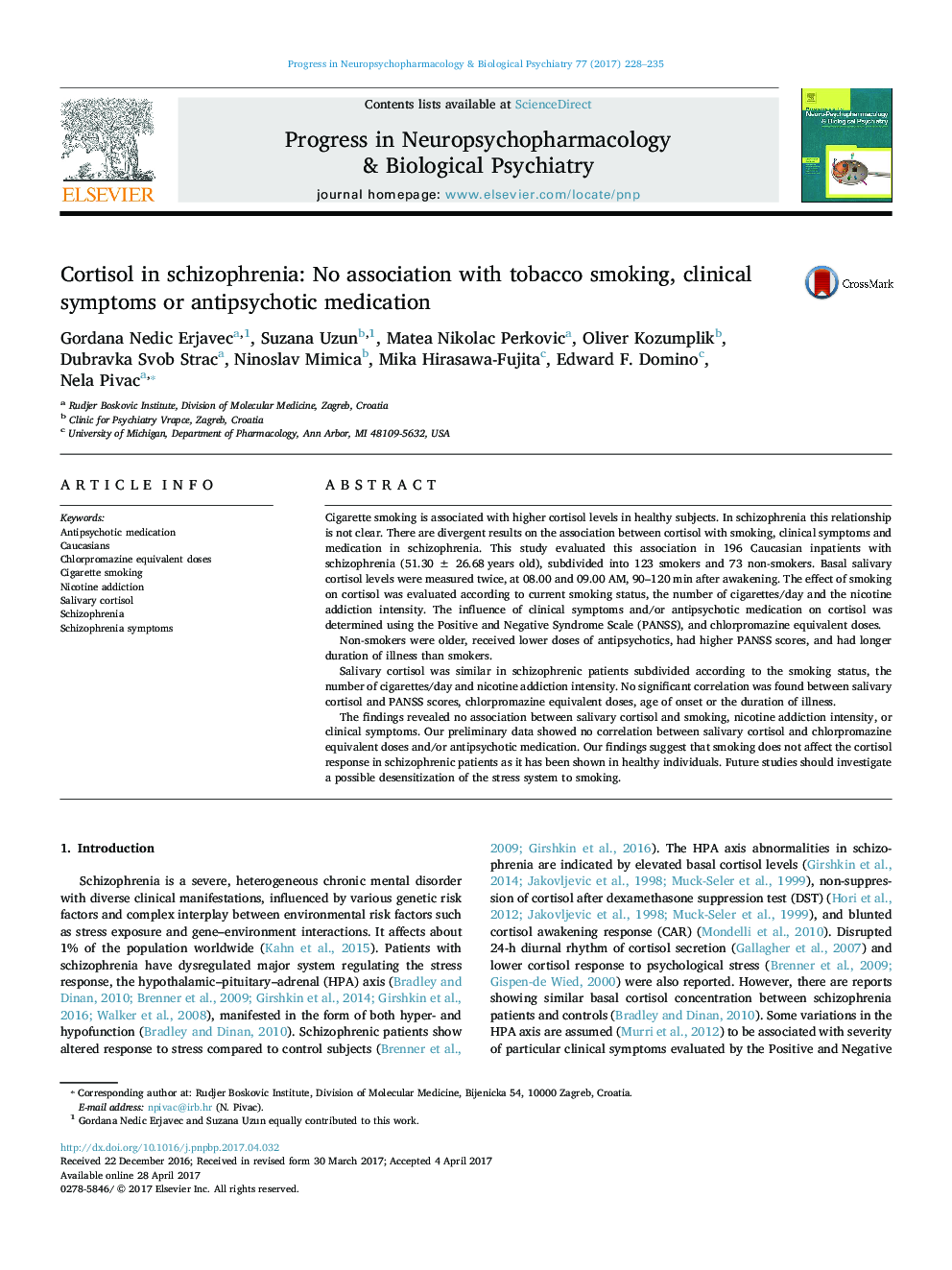| کد مقاله | کد نشریه | سال انتشار | مقاله انگلیسی | نسخه تمام متن |
|---|---|---|---|---|
| 5558065 | 1561017 | 2017 | 8 صفحه PDF | دانلود رایگان |
- Saliva cortisol was not associated with smoking in schizophrenia.
- Saliva cortisol did not differ after the first cigarette smoked that day in smokers.
- Saliva cortisol was not related to the intensity of nicotine addiction in smokers.
- Saliva cortisol was not correlated with various clinical symptoms of schizophrenia.
- Saliva cortisol did not differ in patients treated with different antipsychotics.
Cigarette smoking is associated with higher cortisol levels in healthy subjects. In schizophrenia this relationship is not clear. There are divergent results on the association between cortisol with smoking, clinical symptoms and medication in schizophrenia. This study evaluated this association in 196 Caucasian inpatients with schizophrenia (51.30 ± 26.68 years old), subdivided into 123 smokers and 73 non-smokers. Basal salivary cortisol levels were measured twice, at 08.00 and 09.00 AM, 90-120 min after awakening. The effect of smoking on cortisol was evaluated according to current smoking status, the number of cigarettes/day and the nicotine addiction intensity. The influence of clinical symptoms and/or antipsychotic medication on cortisol was determined using the Positive and Negative Syndrome Scale (PANSS), and chlorpromazine equivalent doses.Non-smokers were older, received lower doses of antipsychotics, had higher PANSS scores, and had longer duration of illness than smokers.Salivary cortisol was similar in schizophrenic patients subdivided according to the smoking status, the number of cigarettes/day and nicotine addiction intensity. No significant correlation was found between salivary cortisol and PANSS scores, chlorpromazine equivalent doses, age of onset or the duration of illness.The findings revealed no association between salivary cortisol and smoking, nicotine addiction intensity, or clinical symptoms. Our preliminary data showed no correlation between salivary cortisol and chlorpromazine equivalent doses and/or antipsychotic medication. Our findings suggest that smoking does not affect the cortisol response in schizophrenic patients as it has been shown in healthy individuals. Future studies should investigate a possible desensitization of the stress system to smoking.
Journal: Progress in Neuro-Psychopharmacology and Biological Psychiatry - Volume 77, 3 July 2017, Pages 228-235
